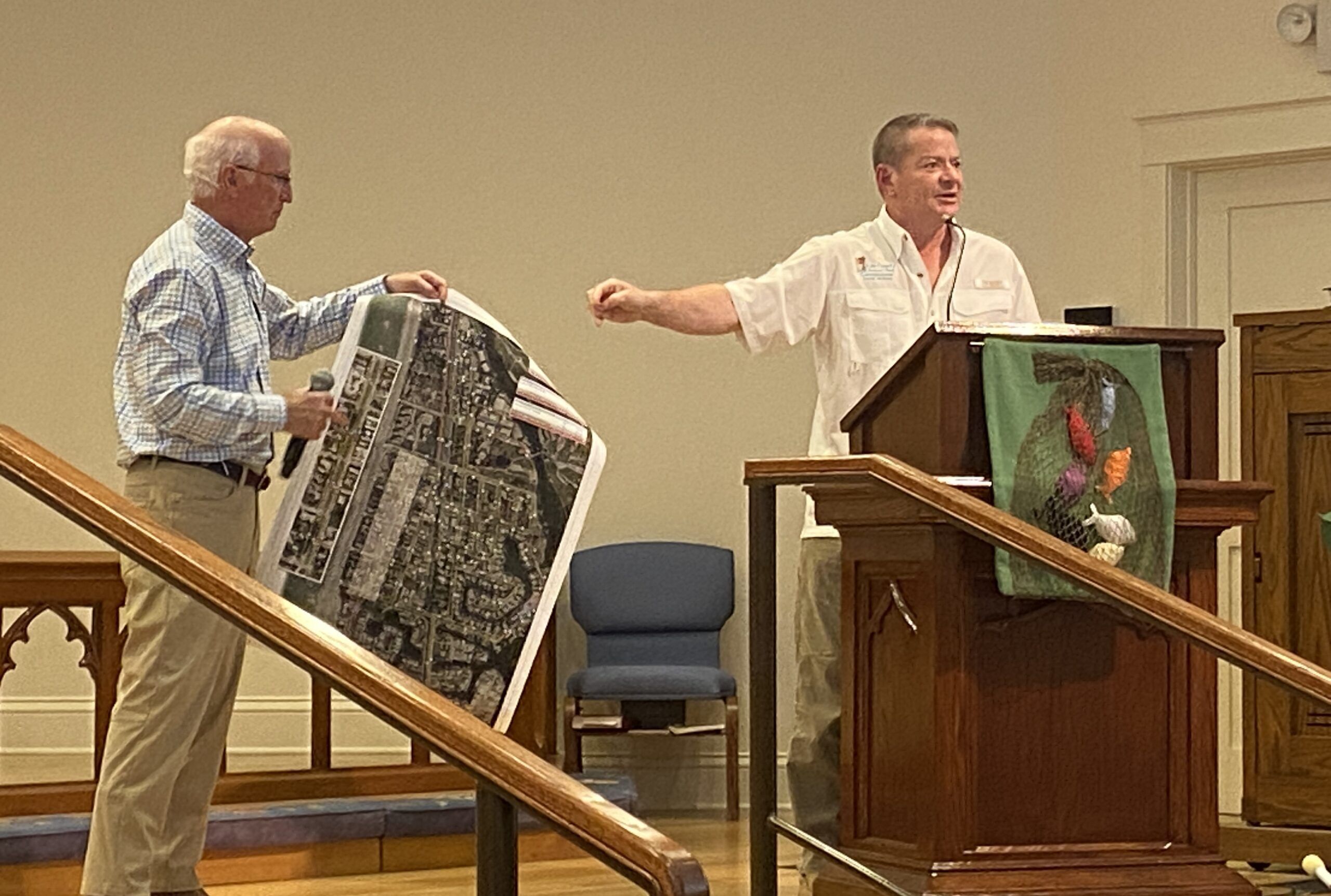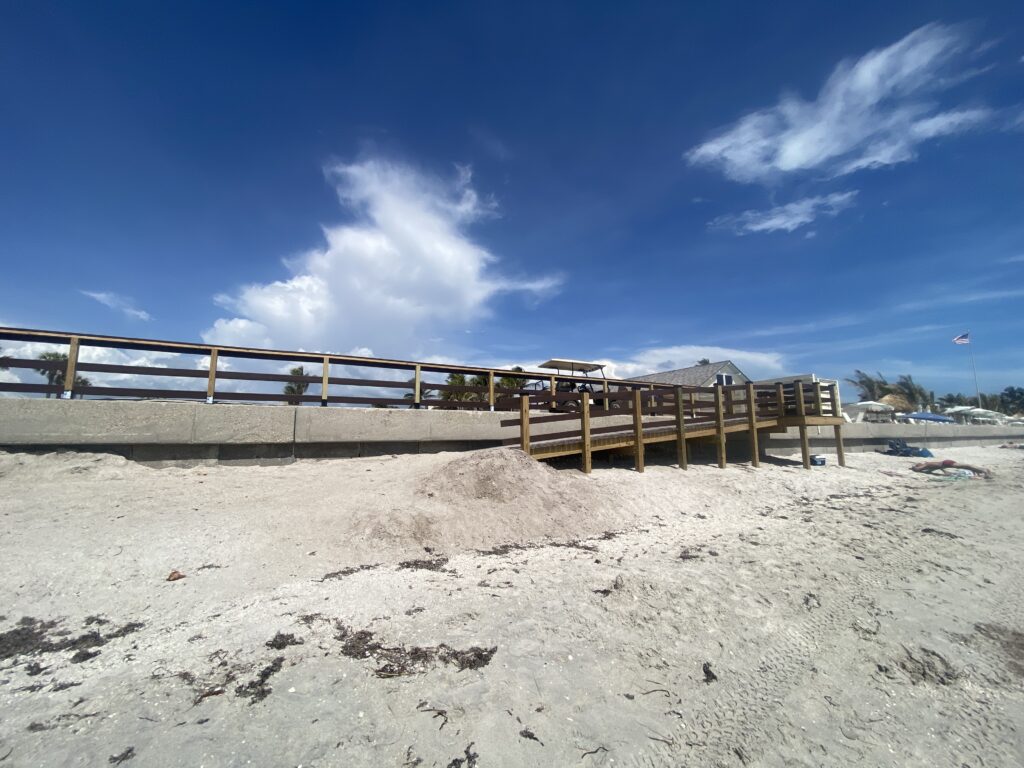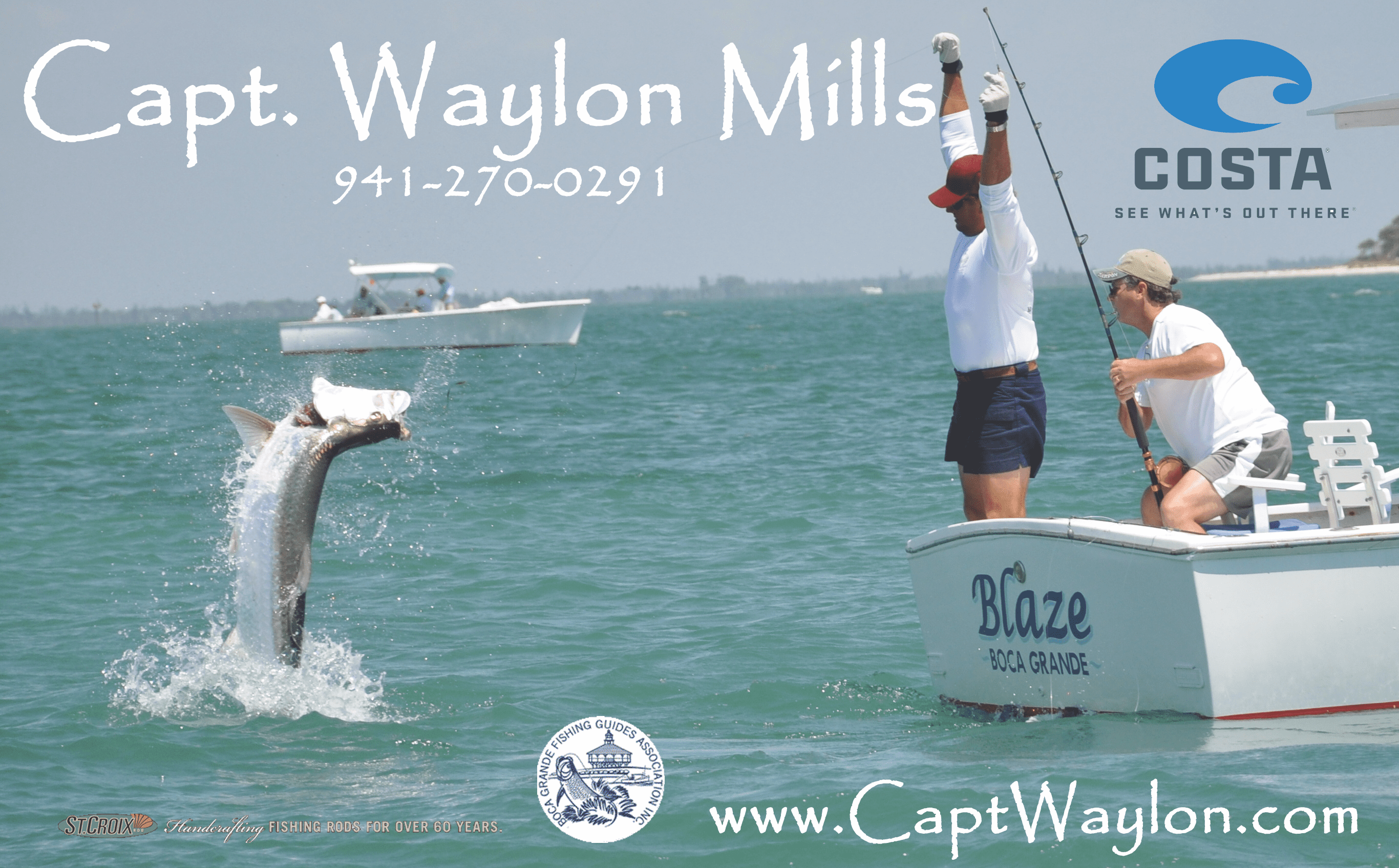Lee commissioner Mulicka talks on beach access and Boca Grande

In interview last week he shared thoughts after visit
Editor’s Note: The Boca Beacon sat down with Commissioner David Mulicka for a profile two weeks ago. He had additional thoughts on beach access, and shared them with our reporter, Sheila Evans. Below are some of his transcribed thoughts on the issue, which help to shed light on the complexity of the access issue on Gasparilla Island.
On his concern for the first district, as a Lee commissioner:
Mulicka: When we run for office, we run county-wide. So, I had to campaign in all four corners of the county, so I’d be prepared for the position. Right now, everybody in Boca Grande can vote for all five seats, so if you know that it takes three votes to make change, then you have five people you can lobby for your cause and sway three opinions. And it can be any of the three of us. You have an equal audience, as you can hold all of us accountable because you vote for all of us.
Just to clarify, all five of us are all single-member residency, so we each live in the district we represent. So, we would be the closest point-person for your neighborhood, so to speak. But when we run for election, we have to run county-wide, to earn the majority of all the votes in Lee County. I’ve been a life-long resident, and I do business all over the county every week, every month, so that is very helpful. But I have to listen and learn the perspectives of people in Lehigh, Bonita Springs, Fort Myers Beach, Boca Grande and Cape Coral. And each of them has their own nuances, whether you are in North Fort Myers or Estero. So, you have to listen and learn when those matters come before us, for the new bridge, the new road, the new park, whatever the situation may be.
Ways to approach beach access:
Mulicka: I am a common-sense businessperson, and I believe there’s got to be a middle ground here somewhere. So, I started asking the churches and the residents that are concerned about people trespassing on their property to tell me what middle-ground looks like, because all or nothing isn’t viable. Anything out of balance won’t last very long in this life. I asked them to tell me what middle ground looks like. What would they concede, what would they be open to? I wanted them to give me something to work with, because if everybody feels equally represented or equally unhappy, that’s what middle ground is.
A workable solution to a tough issue:
Mulicka: I am cautiously optimistic that we can upgrade what’s been presented to you to date, with your feedback. I think there is some opportunity there, but I wish it were a simpler answer for everybody. If you could just tell somebody that this is the flier, here’s your parking pass and these are the rules: don’t park on the sidewalk, don’t block traffic, pick up your trash. People would follow the rules if they knew what they were. I mean, people generally want to.
I brought somebody out here the other day and I’m riding around in the golf cart at the Community Center, and I said, “When did that car park there? What time was it? Was it two hours ago? Was it four hours ago? Was it three days ago?” The answer was that it is a private area. I asked, “Well, how is it marked from the county space next door? The replies were, “Oh, that’s the fire department’s; that’s the hardware shop’s; that’s the post office; that’s our park.” It’s very much a quilt to be stitched together, is the best way I can describe it.
Signage and regulations:
Mulicka: I think there are also some things that we don’t need to regulate to improve, by just restoring a lot of the things that used to be there, like signage. If you have the signs for the rules we already have in place, if they were clearer, I think that would be really helpful. If you were a French-Canadian tourist that just got off the plane, how do you know that you’re not allowed to park on this side of the street, but it’s okay to park on the other side of the street? They don’t know. If they pull up next to a lawn trailer or contractor in the middle of the median on Gilchrist, where they’re building a new house, how would they know that there’s no parking? There’s no sign that says that. They don’t want to break the rules, they just don’t know what they are. So, part of this is awareness.
Improvements made so far:
Mulicka: I hope the people will notice a couple of improvements since I have come around, like the 5th Street area. We had a bunch of cones across the front of it when I got there a month and a half ago. It said, “Parking lot open, beach access closed.” It had a little sign you had to walk up to in order to read it, at least for me. And I said to the staff that the sign doesn’t look very welcoming, and it looks like the parking lot is closed. But what they meant to say is not to fall off the seawall cap, because there’s no stairs.
That’s what was intended, but they put all these barriers across the front and the back, and I told them that it was 100 parking spaces that people think they can’t use, so then they ooze into the next available thing they can find. I asked them to get rid of these, and they were gone the next day. And then the week after that, I’m like, “Can we just put in some mobile home ramp and stairs? I own sets of those. I will give them to you to just temporarily give beach access. Is it required to be ADA rated or not?”

Photo by Garland
I am asking questions. And the next week they put in a brand-new boardwalk. Imagine that. It’s beautiful. They did a great job. We’re going to fix the parking spaces, the handicapped spaces that used to be at the 5th Street parking lot. All that area across the front used to be concrete and ADA parking spaces, well-defined, with signs.
We had a sidewalk that connected all the way from the Inn that was washed away, so let’s put that back. And let’s put back what we used to have. And I said that if people are complaining about trash and bathrooms, we should put in more trash cans and port-a-potties. And so, they did.
These are all incremental steps.
It’s like the scientific method – to do one thing at a time and figure out if that worked or it didn’t. So, the dog park. They said, “Dogs only.” But I said, “Why? We have tennis courts there. Do you have to bring your dog to the tennis court? What if someone just wants to park there and walk to the lighthouse, because that’s what they want to go do?” And the signs were gone the next day. And that’s 40 more spaces. I want to look and see if we want to pave more of that area. I mean, what options do we have that are not onerous for the businesses, the residents, the Inn, the churches?
Why the parking issue has flared up so emotionally this time:
Mulicka: I really believe that the island went through hell last season, and everything was closed at once. All the state parks were closed, and all of our parks were closed. And then people were upset because people from all over the area wanted to go to a beautiful place to get away, and I don’t blame them. We live in paradise. Everybody wants to be like us and be where we are. It’s not a secret anymore. But until we put back what we already have, we won’t know how good it is now. If we add 20 rules to this, how will we know which was the one that solved the problem?
On the churches:
Mulicka: There’s no way on God’s green earth you are going to tell me the churches are causing any of these problems. I stand by that. You can quote me on that. And I also will comment that the Inn was there first, then the churches and then these residents are the newest members of the community. The churches don’t have parking lots because they rode horses when they were built. They didn’t need them. So, why, if you bought a piece of property after knowing the churches are already there, would you complain about the people that were there before you? To me, it’s a bit out of balance. The churches have their own trash cans and bathrooms, I don’t think they are causing any of the issues that are so onerous.
Comments on landscaping on rights-of-way:
Mulicka: I have a problem with people planting landscaping on my right-of-way without permission. Those are subject to removal because you are putting a traffic hazard in the right-of-way, on land you don’t own. I can’t plant stuff on your side of the property line without your permission, or you’d go crazy. Why would you do that to mine, just to block your neighbor from parking? I don’t think that’s being very neighborly, in my opinion. So, I think, fundamentally, everybody just needs to go back to being good neighbors first. Let us restore what we already had.
On the longstanding issues, unsolved:
Mulicka: Boca Grande is a very special place. There’s a lot of history there, and so, when I heard about the parking issues, I was really kind of surprised because I have usually parked at the Inn. I’ve never had a problem getting a space, or I never got a parking ticket there before. So, it always seemed pretty mellow to me. But when I got into the mechanics of the parking and I really stopped and looked around, I personally had not realized the extent of private parking intertwined with the public right-of-way. And I knew about the two parties, about the median parking that’s been going on for 20 years, that’s not a new problem, but I wanted to find a fair and balanced approach.
When you really look at this, what I think is intriguing is it actually is a street-by-street, each side of the road answer. There’s not a cast net you can throw over this whole thing that is a blanket approach, because there’s so many unique characteristics of these intertwined areas.
Other steps that could be taken:
Mulicka: [In the shopping area of Boca Grande] all of those angled spaces need to be “compact car only” or “golf cart parking,” in my opinion. I’d like to see us put bollards (or bumpers) at the end of the parking spaces along the sidewalk so that you can’t block the sidewalk. If you are a little old lady in a wheelchair or you are pushing a baby stroller, you shouldn’t have to walk into traffic to get around an F-350 Crew Cab that’s blocking the lane or parked with their bumper next to the building. That’s unsafe. I don’t think that takes a regulation. It just takes DOT mechanisms, like signage saying, “compact only.”
I don’t think anybody would be offended by that. They may just not realize the ripple effects of the safety for the baby stroller. But there’s no sign that says that, so they pull forward to get out of the traffic, and don’t realize that they’re blocking the baby stroller, or the little old lady, or the person walking their dog and can’t get past it, who has to walk in the traffic. You wouldn’t want someone to do that intentionally. We have to make it easy for them. I really think there’s some common-sense things that if we can just take the emotional side out of this, we can approach this incrementally.
Thoughts on how the approach:
Mulicka: Whatever ordinance or upgrade to the current regulations that are decided in August, it doesn’t have to be the “last and forever” version. We could do this once a month, if we wanted to. I think it’s important that a lot of people may be overthinking “perfect” on everything and every possible lens to try and do it all at once.
We could say, “If we fix phase one, let’s call it that. In August, we could have phase two or phase three whenever those other implementations have had a chance to gel.” And then everybody learns those. And then we can find out what gaps are left. What unintended consequences did these cause? And what did we miss? And then we can approach it again.
There’s no “once forever” in government. It’s an ongoing process. I think I would ask all sides to realize that’s an important statement. We don’t have to be perfect next. We just need to get a little bit better.
And then we can try again. There’s different steps available here. I think you have to test it, find out what worked and what didn’t and then recalibrate as needed. And I think once we get this first step agreed on, people will feel better that something happened. They got heard.
I think the three commissioners coming out there to listen in person was huge. We only had 300 requests during our meetings! I’m like, “We’ve got to go!” I’m so grateful they invited us out here. I thought it was a great forum. I thought everybody was civil. I think everybody got heard. Nobody was rushed. I think it was fantastic. I’ve got five pages of notes to put together from those meetings, and those will be useful in the new opportunity.
If it sounds like this is important to me to do a good job, it is, because that’s how I feel. I care about property owners. I believe in private property rights. I believe in small business. I love The Inn. I think tourism and the beaches are public assets, and all those sides need to be in harmony here. We need to root out bad behavior and reward good behavior, and just be good neighbors. Be nice, first. It will come back to you.
Everybody endured a season that was the worst possible. Most trades ever rebuilding, most clean-up ever, more scars from beach sand covering everything that haven’t been restored yet. I do think that when we do restore the Gilchrist landscaping, that there are ways we can upgrade. I’d like to see us put in dividers in the middle (of the median) that will harden the middle so you just can’t pull through. So, if you park there, it’s just a single vehicle, not a trailer; and that you can’t pull through into the traffic and go the wrong way, or get turned around, or jump out at somebody that’s not expecting someone to drive through with a lawn trailer or trades. I think those are all dangerous safety issues.
But I think when we put that back, we can beautify it. We can put some curbing in. We can mark it. Different permits that we’re looking at, again strengthening the balance on these things. But I think we have to make it easier for people to know what’s right and wrong.
I think 90 percent of the world generally will follow a rule if they know what it is. And the 10 percent, that’s what we have law enforcement, code enforcement and patrols for: to educate and bring into compliance those outliers.
But I don’t think we should cast out the whole bunch.
- New Farlow’s restaurant Chophouse285 anchors Englewood’s Dearborn Street
- Schmaltz & Pepper for All That Jazz
- Charlotte meets on beach access; Placida park project moves forward
- World of mangroves the subject of conservation lecture series talk at Englewood Chamber of Commerce
- Magano at Camera Club talks on light-painting and photography









